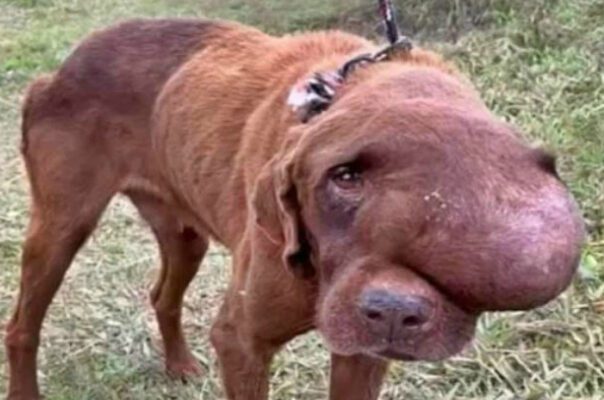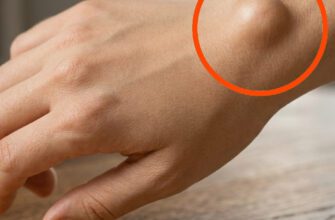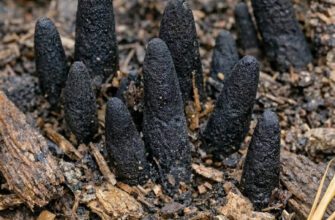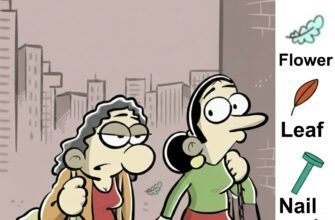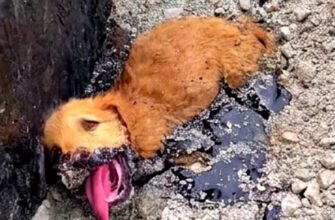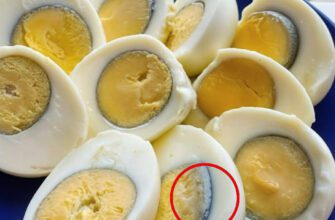On the edge of a village, where asphalt ended and the roads turned into narrow paths, someone noticed a ginger shadow. At first, it seemed like a lost fox. Then—perhaps an old, time-worn stray. But as they drew closer, the truth revealed itself.
It was a dog. Once large, maybe even majestic. Now—reduced to nothing but bones, ribs sharp and countable, his head grotesquely swollen on one side. A tumor? A massive abscess? Whatever it was, the essence didn’t change—the pain and burden he carried were unimaginable.
He stood by the roadside, tied to a bush with a rope. The grass around him was trampled, proof that he had been there far too long. His eyes—dull, yet impossibly deep. The eyes of one who had seen too much to fear, and far too little kindness to trust.
“Hello…” Anna whispered, stopping just a few steps away. “You’re not mean, are you?”
The dog didn’t move. He only blinked, as if her words reached him through a heavy fog. His breathing was rough, every inhale a battle.
The veterinary clinic greeted them with cold walls and the sting of antiseptics. The doctor examined him in silence, then straightened up.
“This looks like a neglected abscess or tumor. It’s been here for months. He needs surgery, but… he’s weak. The risk is enormous.”
Anna nodded. “If we do nothing, he’ll die. I choose to fight for him.”
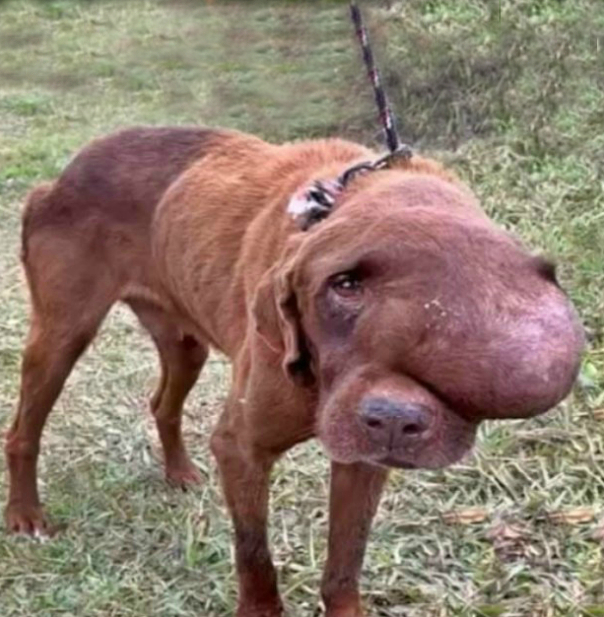
The first days were a trial. The dog barely ate, drank reluctantly, and lay for hours with his head pressed against his paws. Sometimes, when Anna sat beside him, he would lift his eyes—just for a moment—and a faint spark flickered inside them.
“Come on, Mars,” she whispered, giving him a name. “You’ll walk again, smell the grass, taste good food… Just hold on.”
Medicines, bandages, injections became routine. Each time she brought him a bowl, he turned his head away. Then Anna would sit quietly next to him, waiting. After a few minutes, he would take a hesitant first bite.
Weeks passed, until one day the doctor said:
“The inflammation has gone down. We can try to remove it. The chance—fifty-fifty.”
Two hours of surgery felt like an eternity. When the surgeon finally emerged, he said:
“We removed most of it. He’ll breathe and eat easier now. The rest depends on his recovery.”
A scar stretched from his eye to his ear, the right side of his face forever changed. But Mars himself had changed more than his appearance. He began to notice sounds, to seek Anna’s gaze, to approach her just to rest his head on her lap.
One spring day, as they returned from a walk, Mars stopped, lifted his face to the sky, and inhaled deeply the scent of blooming lilacs.
“Do you like it?” Anna asked softly.
He looked at her, and in his eyes was something words could never capture: gratitude, peace, life.
A few weeks later, a letter lay at their doorstep. Inside was an old photo and a note. The photo showed the same dog, only younger, his face whole, sitting proudly at the feet of a man. The letter explained that his name had once been Ralph. His owner, terminally ill, had given him away, hoping someone kind would take him. But things had gone wrong, and the man had lost track of his dog.
“Thank you for finding him. He was always gentle, he deserved more than what life gave him. Now I can be at peace.”
Anna read the letter several times.
“So, Ralph or Mars?” she smiled, looking at the dog. “You know… I think you’re both now.”
Mars pressed himself against her legs. His eyes were the same as that first day—but now, instead of pain, they held certainty.
She hugged him, and he stayed close, breathing softly. In that moment, she understood: not every scar must be hidden. Some are marks of victory.
➕
